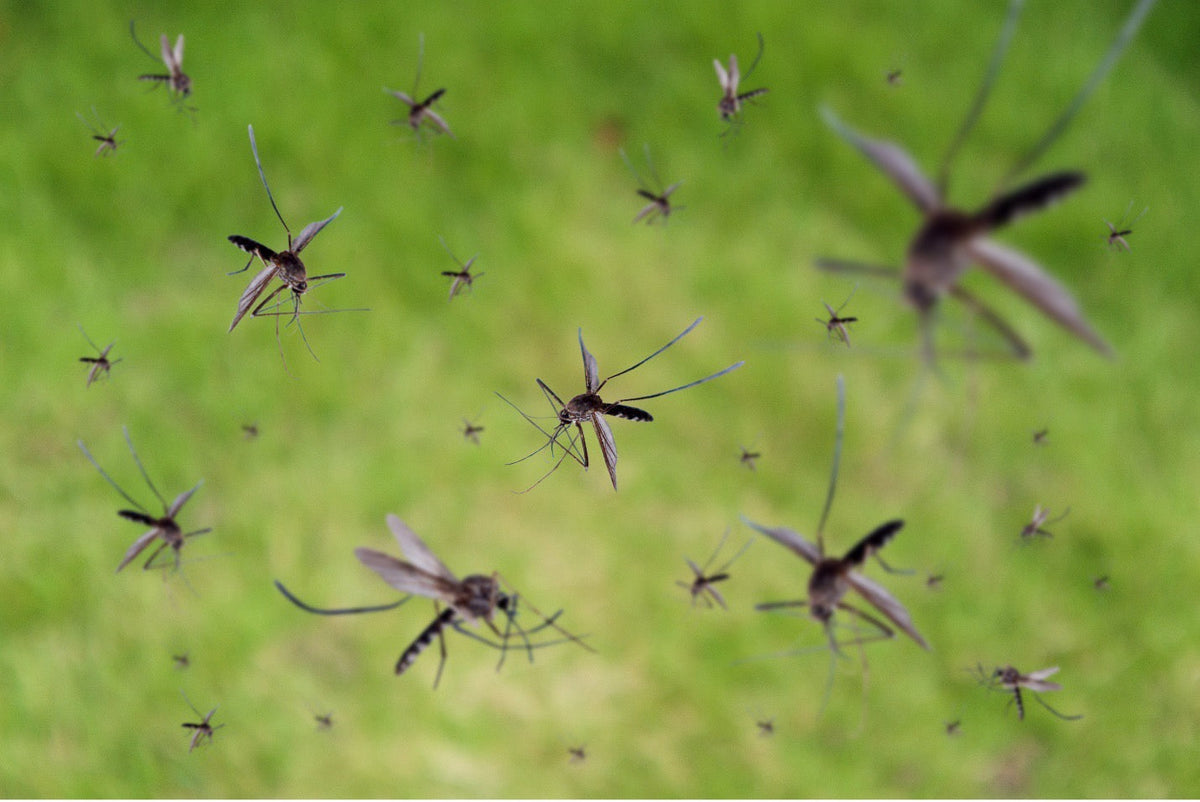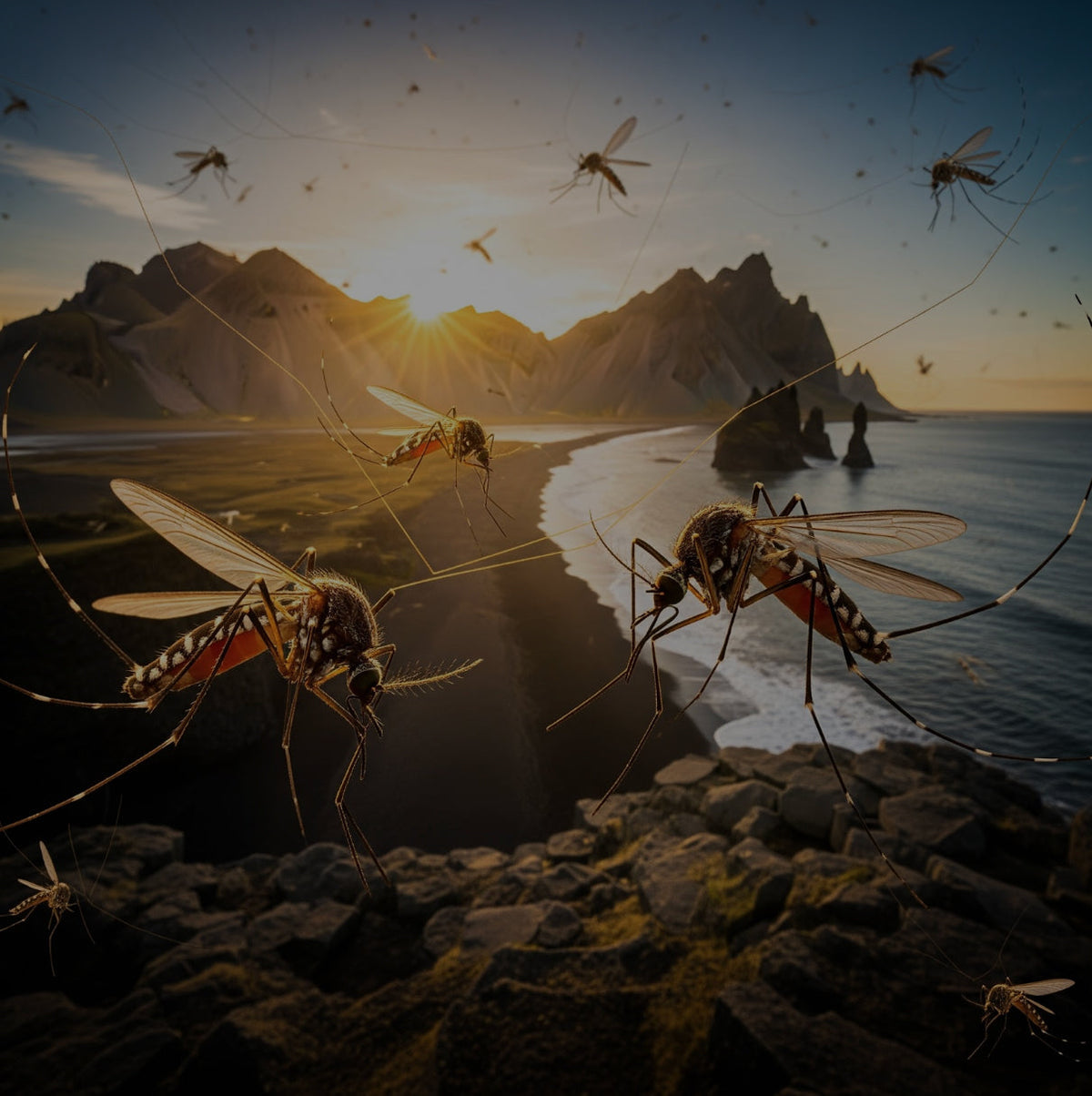
Mosquito Season on Long Island: What You Didn't Know
We see them. We swat them. We itch for days. But how much do we really know about the mosquito, the tiny insect that dominates summer evenings and disrupts outdoor fun across Long Island?
From backyard BBQs to beachside strolls, mosquitoes are more than just a nuisance. Some species can carry serious health risks, while others simply make summer uncomfortable. Long Island’s warm, humid climate makes it a hotspot for mosquito activity, and without proper mosquito control, populations can quickly get out of hand.
Want to stay safe and bite-free? Explore these surprising “Did You Know?” facts about mosquitoes, and learn about smarter, safer ways to protect your family and yard, without harming the environment.
MOSQUITOES
- Did you know mosquitoes are the deadliest animals on Earth? They kill more people each year than sharks, snakes, and lions combined—mostly by spreading diseases like malaria, dengue, and West Nile virus.
- Did you know that on Long Island, mosquito pools regularly test positive for West Nile virus? In 2024 alone, mosquito samples from areas like Holtsville and Farmingville came back positive for the virus.
- Did you know only female mosquitoes bite? They need the protein in blood to develop their eggs. Males are strictly nectar sippers.
- Did you know mosquitoes can detect your breath from 100 feet away? They’re drawn to the carbon dioxide we exhale.
TICKS
- Did you know the deer tick (also called the blacklegged tick) is responsible for most Lyme disease cases on Long Island?
- Did you know ticks don’t jump or fly? They “quest”—perching on the tips of grasses and waiting to latch onto a passing host.
- Did you know a tick bite can trigger a red meat allergy? The lone star tick, now found on Long Island, has been linked to alpha-gal syndrome, which causes severe reactions to eating beef, pork, or lamb.
- Did you know some ticks carry more than one disease? A single bite can transmit Lyme, Anaplasmosis, and Babesiosis all at once.
FLEAS
- Did you know fleas can jump over 100 times their body length? That’s like a human leaping over a skyscraper.
- Did you know a flea can start feeding on your pet within seconds of landing—and begin laying eggs within 24 hours?
- Did you know flea infestations can lead to anemia in pets? In heavy infestations, fleas can literally drain too much blood.
GNATS
- Did you know fungus gnats are attracted to moist soil and decaying plant matter, not humans? They're harmless—but annoying.
- Did you know some gnats serve important ecological roles, like pollination and breaking down organic waste?
- Did you know overwatering houseplants is one of the top causes of indoor gnat problems?
FLIES
- Did you know the common housefly can carry more than 100 different pathogens—including Salmonella and E. coli?
- Did you know flies taste with their feet? They land, walk on your food, and immediately decide if it’s good to eat.
- Did you know a single pair of flies can produce over 1 million offspring in a matter of weeks?
SPIDERS
- Did you know most spiders are completely harmless—and incredibly helpful? They eat other pests like mosquitoes, moths, and roaches.
- Did you know Long Island is home to several spider species, including orb weavers and sac spiders? While sac spiders may bite, their venom is mild and rarely requires medical attention.
- Did you know spiders don’t seek you out? They prefer undisturbed corners, basements, and quiet crevices where they can catch prey.
WHAT ABOUT THE GOOD BUGS?
- Did you know bees are responsible for pollinating about one-third of the food we eat?
- Did you know butterflies are not just pretty—they help pollinate wildflowers and support other wildlife?
- Did you know indiscriminate pesticide use kills beneficial insects, disrupts ecosystems, and can contaminate soil and water?
HOW TO PROTECT YOUR HOME—THE NATURAL WAY
You don’t need harsh chemicals to deal with pests. Safe* and 100% botanical pest control solutions are not only effective—they’re also better for your family, your pets, and the planet. That is all that MosquitoNix does and has been doing for over 20 years!
Use essential oils like peppermint, cedarwood, and thyme to repel insects naturally, which are the active ingredients in MosquitoNix’s proprietary organic solution.
Eliminate standing water to deter mosquito breeding. Mosquitoes breed mostly at dawn and from dusk through midnight.
Seal cracks and repair screens to keep spiders and ticks outside.
Encourage beneficial insects by planting native flowers and avoiding chemical sprays.
FINAL THOUGHT
Pests may be a part of life on Long Island, but that doesn’t mean you have to live with bites, itches, and potential diseases. With smart, natural solutions, you can protect your home and the bees, butterflies, and birds that make our ecosystems thrive.
Stay bite-free—without harming what really matters.
*MosquitoNix Pro when used as directed
Leave a comment
Comments will be approved before showing up.







